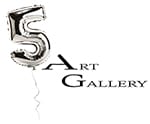My life is a dot lost among thousands of other dots. (Yayoi kusama)
Born in Matsumoto, Japan in 1929, Yayoi Kusama began her artistic education at the Kyoto School of Arts and Crafts. There, she studied Nihonga, a style of formal, traditional Japanese painting that emerged in the Meiji period (1868–1912). Following six solo exhibitions in Japan during her early artistic career, Kusama moved to New York in 1958, inspired by the rise of Abstract Expressionism in the United States. She was one of the first Japanese artists of her generation to make this move, and her early mobility, combined with her openly acknowledged history of mental illness, contributed to a highly visible, eccentric public persona.
Soon after her arrival in New York, Kusama began a series that she referred to as Infinity Nets, an important body of work that encompasses paintings, soft sculptures, collages, films, and installations. Her acclaimed all-white, patterned, and monochromatic Infinity Nets paintings allude to the artist’s hallucinations of being overcome by endless netting. The paintings’ minutely rendered and repetitive forms are invisible when viewed at a distance, inviting the viewer to approach and experience an individual, private interaction. The series—which shares some stylistic features with the work of the then-emerging American Pop and Minimal art movements and European groups such as Zero—quickly brought Kusama to the attention of the New York avant-garde, and won her the recognition of artists such as Donald Judd, with whom she developed a close friendship. In the early 1960s she began to create large-scale, immersive installations called Accumulations that feature objects covered with white, phallic protrusions; these projects presaged Claes Oldenburg’s soft sculptures and aspects of American Pop art. She also staged provocative Happenings that involved the artist painting polka dots on participants’ bodies. Kusama appropriated the polka dot as her signature symbol, and has used it throughout her prolific career, which spans collage, drawing, fashion, film, installation, painting, performance, poetry, and sculpture.
Kusama represented Japan at the Venice Biennale in 1993. She has been the subject of international touring exhibitions organized by institutions such as the Los Angeles County Museum of Art and the Museum of Modern Art, New York (1998); Le Consortium, Dijon, France (2000); National Museum of Modern Art, Tokyo (2004); and Museum Boijmans Van Beuningen, Rotterdam (2008); as well as a major retrospective shown at the Museo Nacional Centro de Arte Reina Sofía, Madrid; Centre Georges Pompidou, Paris; Tate Modern, London; and Whitney Museum of American Art, New York (2011–12). The artist has won numerous awards and honors, including the Asahi Prize (2001), French Ordre des Arts et des Lettres (2003), and 18th Praemium Imperiale award for painting (2006). Kusama was the subject of Near Equal Yayoi Kusama: I Adore Myself (2008), a documentary film by Takako Matsumoto.

